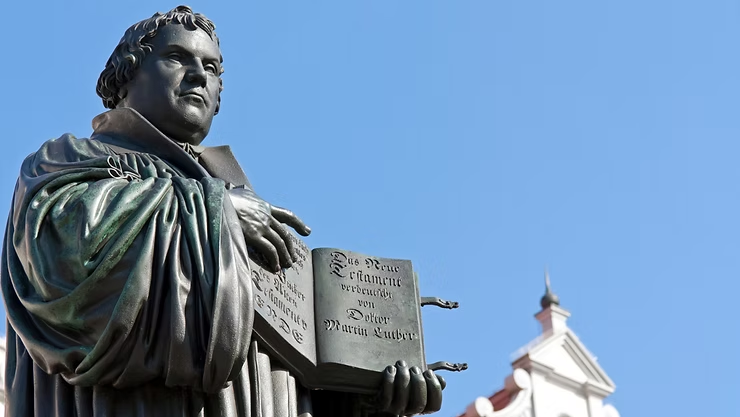Martin Luther: Pioneer of the Protestant Reformation
Martin Luther was a German theologian, professor, and a key figure in the Protestant Reformation whose Ninety-Five Theses challenged Catholic Church practices and sparked major religious, political, and social changes that still resonate today.
Early Life and Education
Family Background
Born in Eisleben, Germany, Luther came from a middle-class family. His father was a copper miner, and his mother managed a large household. Raised in a devout Catholic environment, Luther was exposed early to religious teachings.
Childhood and Upbringing
Despite hardships such as poverty and illness, Luther’s determination was nurtured by supportive parents who valued education. At 14, he attended a Latin school, fostering his passion for learning.
Education and Academic Achievements
He earned his Bachelor’s and Master’s degrees from the University of Erfurt, gaining deep knowledge in theology and philosophy, which later empowered his challenges to religious norms.
Religious Journey
Early Religious Influences
Luther’s upbringing and influences from theologians like Augustine shaped his spiritual views and commitment to faith.
Conversion and Monastic Life
A profound spiritual awakening led Luther to embrace salvation by faith alone and enter monastic life, dedicating himself to prayer and theological study.
The Ninety-Five Theses
Background and Context
At a time when the Catholic Church’s sale of indulgences caused controversy, Luther boldly questioned church authority, challenging corruption and igniting reform.
Content and Impact
- Salvation through faith alone, not indulgences
- Rejection of papal authority over forgiveness
- Condemnation of selling indulgences for profit
The theses rapidly spread, sparking debate and ultimately the Protestant Reformation.
Reformation Movement
Spread of Ideas and Conflicts
The printing press helped Luther’s ideas reach a broad audience, challenging the Catholic Church and leading to his excommunication and outlaw status.
Formation of Protestantism
Luther’s movement grew into Protestantism, transforming religious power structures and influencing European history.
Translation of the Bible
Motivation and Process
To democratize scripture, Luther translated the Bible into German, ensuring accessibility beyond the Latin-educated elite through meticulous work on original texts.
Impact on Language and Culture
This translation standardized modern German, expanded literacy, and fostered a unified cultural identity.
Legacy and Influence
- Church Reformation and Protestantism
- Bible translation advancing literacy and language
- Advocacy for education reform
- Promotion of social justice and equality
Luther’s influence continues to shape religion, education, and social justice globally.
Political and Social Activism
Peasants’ War
While sympathetic to peasants’ demands for reform, Luther opposed violent rebellion and urged peaceful solutions, which limited his influence on the conflict’s outcome.
Education and Social Justice
Luther championed universal education to empower individuals and pushed for social justice, condemning inequality and advocating compassion for the marginalized.
Later Years and Death
Excommunication and Banishment
After refusing to recant, Luther was excommunicated and declared an outlaw, leading him to hide but continue promoting reform ideas.
Life in Wittenberg
Settling in Wittenberg, Luther taught, wrote, and helped establish a university, making the city a Reformation hub.
Conclusion
Martin Luther’s revolutionary actions reshaped Christianity, language, education, and social thought, leaving a lasting legacy celebrated worldwide.

